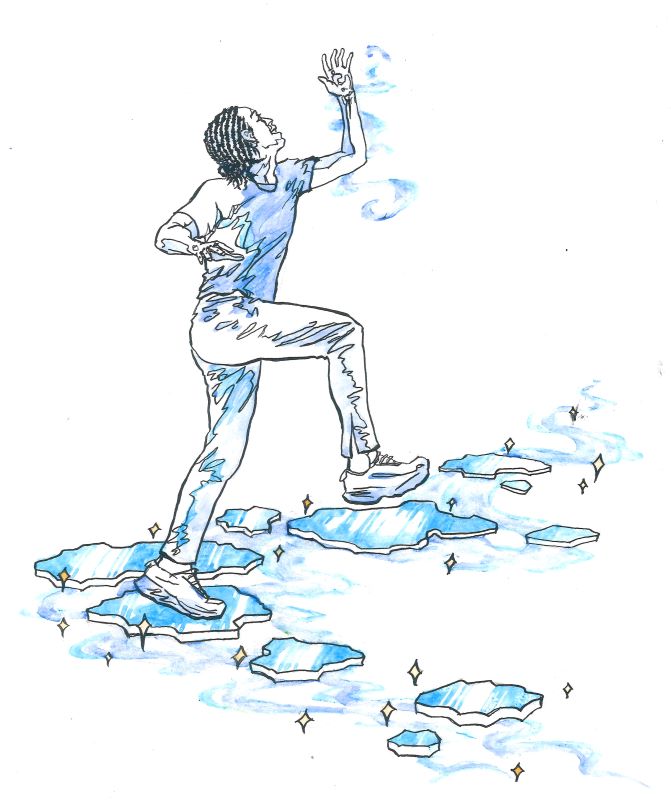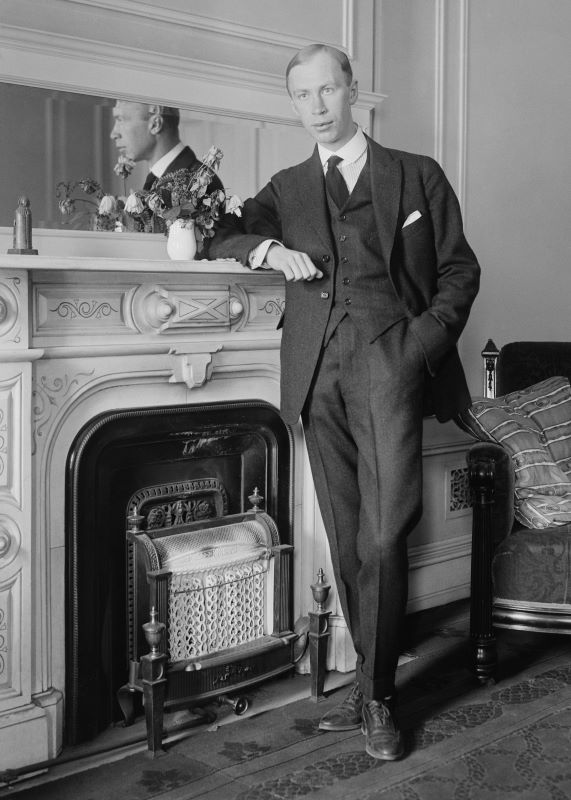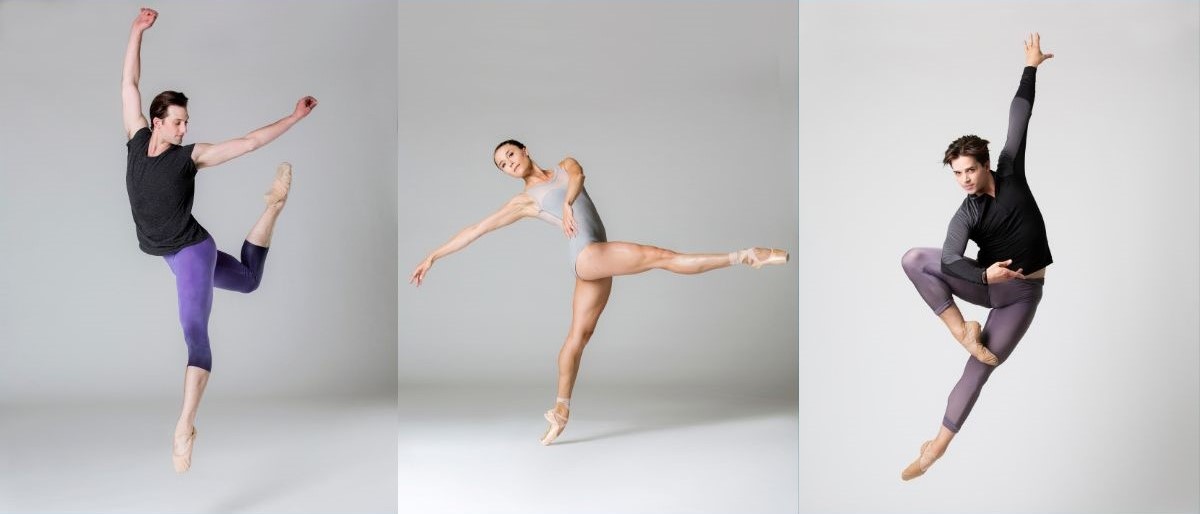
Steve Sneed works closely with Pacific Northwest Ballet leadership and PNB’s Inclusion, Diversity, Equity, and Accessibility (IDEA) Committee as a race and social justice consultant. He has been consulting with PNB since Fall 2020.
Steve began his career at the age of 15 as the Leader of the African Drum and Dance group the Ogundas. For seven years, the group performed at festivals, prisons, colleges, churches and various special events in the State of Washington including CTI Jazz at the Paramount Theatre. He graduated from the University of Washington with a General Studies degree, designing his major which he called, Black Performing Artist. Steve worked as an Equity actor in Seattle, and produced and directed plays in Seattle. As an actor he was nominated for an Emmy Award for his role in the KCTS 9 Drama, Cellar George of which he played the title character.
Steve is semi-retired after 31 years with the City of Seattle, serving 11 years as the Director of the Langston Hughes Center and 20 years as the Managing Artistic Director of Cultural Programs at Seattle Center where he expanded the Festal Cultural Festival program from 11 events to 24 ethnic cultural festivals. For ten years he served as the Co-Lead of the Seattle Center award winning Race and Social Justice Initiative (RSJI) Change Team.

Steve has served two terms as a Washington State Arts Commissioner appointed by Governor Gregoire, a Board member for the local arts organization Central District Forum For Arts and Ideas, founding Co-Chair of the Historic Central Area Arts District, and is currently serving as a board member with Inspire Washington. In 2001, Steve was the Recipient of the Corporate Council for the Arts (now Artsfund) “Unsung Hero Award.” In 2017, he was selected as “Man of the Year” by the Fifth District First AME Church of the Pacific Northwest. In 2019, he was given the City of Seattle Leadership in Management award by the Seattle Management Association and the Cultural Custodian Award from the Central District Reunion committee.
In 2014 and 2015 Steve directed the community Black History production, “Can I get a Witness,” which involved over 50 cast and crew members and performed to capacity crowds at the Langston Hughes Arts Institute. Steve is the proud dad of six children, six grandchildren and has been married to Vida, his childhood sweetheart, for 40 years.
You’ve worked for a number of Seattle arts organizations including Langston Hughes Performing Arts Center and Seattle Center. How did you transition from working internally in arts organizations to being a consultant?
While I was with the City of Seattle I had the opportunity to work with a lot of consultants and always thought once I retired I could provide consultant services. I was able to witness all of the various ways consultants approach their work and serve clients. It can be very specialized work. In 31 years with the City of Seattle, I was able to learn so much. I gained knowledge from all of the trainings, conferences and learning opportunities the city offers. We complain about it, but the trainings are of great value. The Race and Social Justice training and work was really designed to prepare me to take the learning somewhere beyond the walls of the City of Seattle.
Do you have any favorite memories or moments from your time working for Seattle Center?
Working for Seattle Center for 21 years has many, many memorable moments. Those that stand out are when our Unit, called Seattle Center Productions, would be called to respond to any HUGE community need, like 9/11. In a few days we designed and executed the flower vigil where citizens were given the opportunity to just bring flowers to the fountain and express their grief. We expected to do this for a few days and it went on for, I believe, a week or more. People kept coming with flowers, teddy bears, all kinds of items. In some cases communities came to express themselves as did the Sikh community to tell people they were not Arab. They had signs saying, “We are Sikh not Arab, please do not vent your anger at us.” It was intense. I came to realize the importance of this community gathering place.
The Festal 20th anniversary was a great year also. A year of celebrating culture. We coordinated all sorts of special events to complement the Cultural Festivals. The 20th anniversary, Festal Turns 20, helped draw more attention to Festal.
How has your approach to arts work in Seattle changed over the course of your working life? What aspects have stayed the same?
I tell people I am doing the same work now that I was doing when I was 15 years old. The basic nature of the work is the same. Working with people, using creativity, working with people, using my God-given talent, working with people. What has changed is my skill level as I grew and learned more and sharpened my skills. I was able to work in high-demand, professional environments. I am a percussionist, actor and theatre director. When I was 15 all I wanted to do was play my drums. As I got older I understood I liked the entire industry, and only playing my drums for a living was not gonna work for me. I began to see how I could be involved in the entire industry, and keep playing my drums, occasionally.
You’re a member of the First AME church in Seattle, where you teach Sunday school. How does your faith influence your work and vice-versa?
I teach Sunday School at First African Methodist Church. I have actually been the Superintendent with my wife and another woman for the past seven years. I actually started playing African Drums at my home church, Grace Methodist, when I was 15 years old. The church allowed us to cultivate this group called the Ogundas and for 7 years we played all over the state of Washington. It was my introduction to the arts. The church gave us the building to rehearse and allowed us to form our own leadership and create and handle our own booking. We played all of the local festivals like Bumbershoot, University Street Fair and Fremont fair. I understand God has given me talents and abilities and all that I do is a reflection of God’s goodness. I consider my Race and Social Justice work to be important God-given work for me to do.
Along with your arts administration and consulting work, you are an actor. What have been your favorite roles?

I have three roles that I really enjoyed for different reasons. My role as Cellar George in the KCTS drama, Cellar George. It was my first movie and I was the lead. I had a fight scene and I got to shoot a gun, what a blast for me at that age! I was working with a lot of friends from the UW and Black Arts West. We had a great time!
I played the orderly in a play called Whose Life is it Anyway at ACT. It was a theatre I admired, and they hired me for two of their plays. That was nice as it gave me good income for four months!
I played Tony in You Can’t Take It With You. This play is an old classic comedy and because it was produced by the Black Theatre Project I, along with my fellow Black actors, played roles traditionally written for white actors. Most of my acting was in my 20’s. I am doing commercial acting these days.
I spent a fair amount of my time directing theatre, and I really have enjoyed that aspect of my career. My most memorable experience was my first production after college. I was working to start an arts program at a local Boys and Girls Club. So I produced and directed an original musical called Streetlife. It was in the summer and performed at the new Broadway Performance Hall.
What’s your non-working life like? Anything you’d like to share about your family or your life at home?
My non-working life or the things I do with my free time are grilling and smoking meat. I love the BBQ and occasionally I will smoke a brisket or ribs and grill some chicken. Recently I watched a series on Netflix called “High on the Hog” about Black Chefs and their contribution to American cuisine. It gave an amazing history of these little-known Black chefs and African cook ways that are not acknowledged in America and yet are so much of What American food is. BBQ is a part of this canon of Black cooking. Everyone should watch this program.
I also have spent a great deal of non-work time coaching baseball with my sons and then my grandson. I love the game and we continue to attend Mariners games. I also really like to watch two of my granddaughters run track. They are both pretty good. Ultimately I like watching my grandkids do anything!
I really enjoy traveling with my wife, exploring new places. We grew up in Seattle so we can go to the San Juans and explore; it does not have to be far away.
I spend time growing tomatoes, green beans, zucchini, herbs and some peppers. I found that when I could divert my attention from the intense work of the arts, I could refresh and renew myself to come back with new and different perspectives. I believe cultivating creativity requires a dynamic life that involves family, friends and just other activities, away from the arts world.

What are you watching, reading, and/or listening to?
I am currently reading Frederick Douglas by David W. Blight, Mediocre by Ijeoma Oluo, and I just finished Caste by Isabel Wilkerson. Isabel Wilkerson is an amazing writer. Her other book, The Warmth of Other Suns, is outstanding! During Covid I have come to learn there is a lot of good TV out right now. There are so many documentaries to watch. The Color of Compromise, by Jemar Tisby has a curriculum with the video series. Very good.
Do you have any pandemic-friendly Seattle spots?
My pandemic friendly spots this past year have been outdoors. My wife and I took good hour-long walks in our area. Those were great with good weather and even semi good weather.
What advice would you give your 13-year-old self?
I would tell my 13 year old self, “A thing called a computer is going to change the world, invest in Microsoft stock, buy a house in the Central Area of Seattle really early and follow the wisdom of God at 13 years old.”
What commercials can we see you in?
Currently the one out is Consumer Cellular. I was in a Washington State Lottery back in December.
Tell us something we don’t know!
There is so much you don’t know but I guess the question is, “Is there anything interesting that you don’t know.” Depending on who is reading this you don’t know my wife and I have been married 40 years, this year. We started dating when she was 15 and I was 17. She started school a year early, so she graduated early. A month after we met we both had birthdays and were 16 and 18. How is that?

Featured photo: Steve Sneed with dancers during a Festal Cultural Festival at Seattle Center.
Photos: Steve Sneed. Steve Sneed acting in a play at ACT. Steve with his wife Vida, and their children. Photo collage of Steve with Vida, and their family. All photos courtesy of Steve Sneed.


